Search
Did you mean: Mosaic?
Search Results

Definition
George Frideric Handel
George Frideric Handel (1685-1759) was a composer of baroque music who was born in Germany but became an English citizen. His most famous works include his Messiah, Water Music, baroque Italian operas, and English oratorios. A hugely successful...
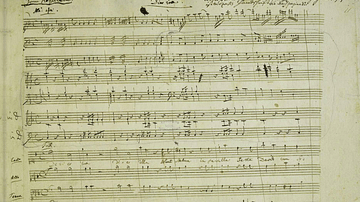
Image
Mozart's Music for his Requiem
A facsimile sheet of the music handwritten by Wolfgang Amadeus Mozart (1756-1791) of the composer's Requiem (1791).

Image
The Holly & the Ivy Sheet Music
A page of sheet music for the Christmas carol The Holly and the Ivy. From a 1926 issue of the Radio Times magazine.
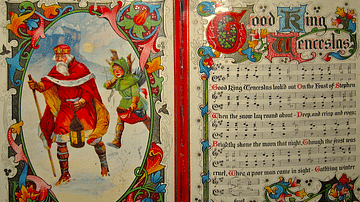
Image
Good King Wenceslas Carol Music
A 1913 biscuit tin showing Good King Wenceslas, the Bohemian duke and saint Wenceslaus I (r. 921-935), and the music for the Christmas carol of that name. The lyrics were written by John Mason Neale (1818-1866). Tin made by Hudson, Scott...

Definition
Ludwig van Beethoven
Ludwig van Beethoven (1770-1827) was a German composer of Classical and Romantic music; he is widely regarded as one of the greatest musicians to have ever lived. Most famous for his nine symphonies, piano concertos, piano sonatas, and string...

Video
Ancient Egyptian Dance and Music
In Ancient Egyptian society, both dance and music were highly valued. They were integral to creation and communication with the gods and there was an intrinsic link between music and dance and the divine. The goddess Hathor was associated...
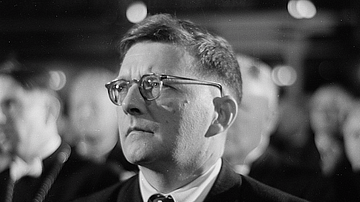
Definition
Dmitri Shostakovich
Dmitri Shostakovich (1906-1975) was a Russian composer of operas, ballets, concertos, string quartets, and 15 symphonies. Shostakovich was frequently denounced by the repressive Soviet state, but in some periods, he also gained official favour...
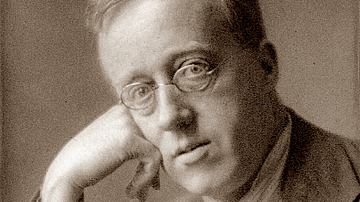
Definition
Gustav Holst
Gustav Holst (1874-1934) was a British composer of Swedish origin most famous for his dramatic orchestral suite The Planets, first performed in public in 1919. Holst also composed several operas, wrote sacred choral works such as The Hymn...

Definition
Frédéric Chopin
Frédéric Chopin (1810-1849) was a Polish composer and virtuoso noted for his solo piano music. Chopin's work helped make the piano the most popular musical instrument of the 19th century. One of the great composers of Romantic music, Chopin's...
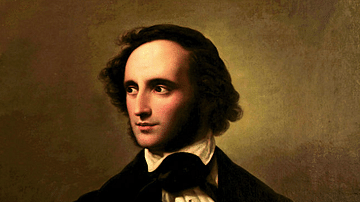
Definition
Felix Mendelssohn
Felix Mendelssohn (1809-1847) was a German composer of Romantic music best known for his symphonies, overtures, concertos, piano pieces, and songs. Amongst his most popular works are his Wedding March from his score for A Midsummer Night's...